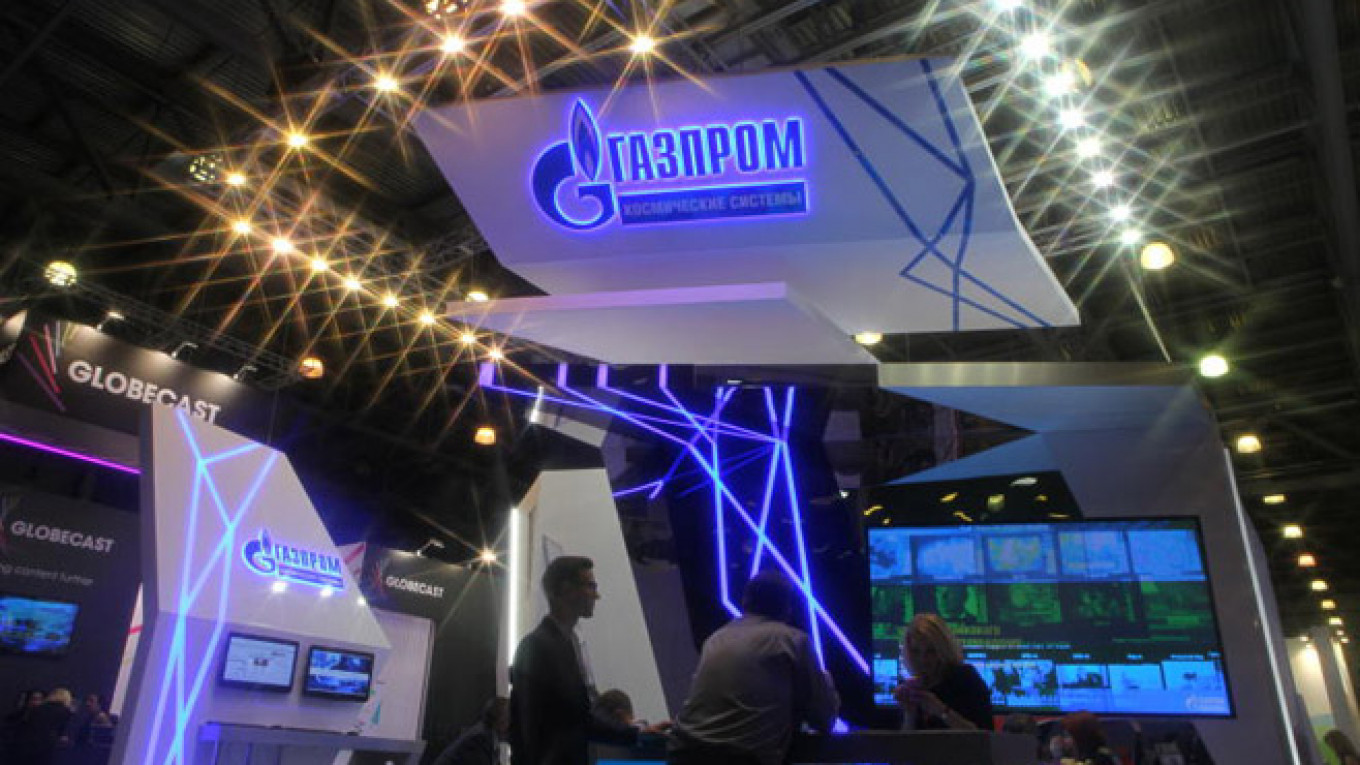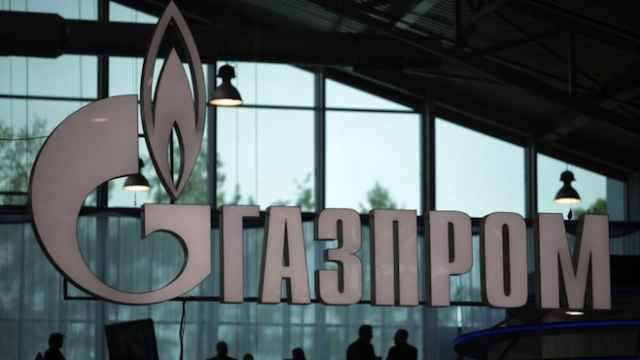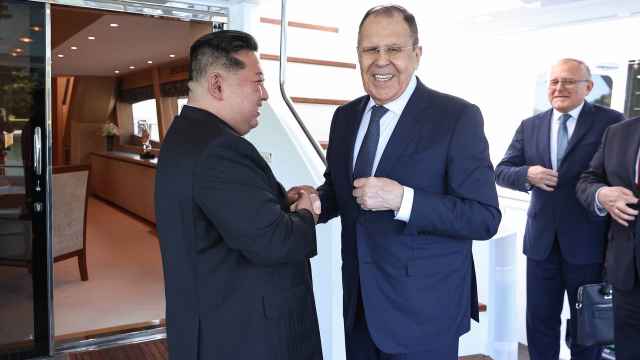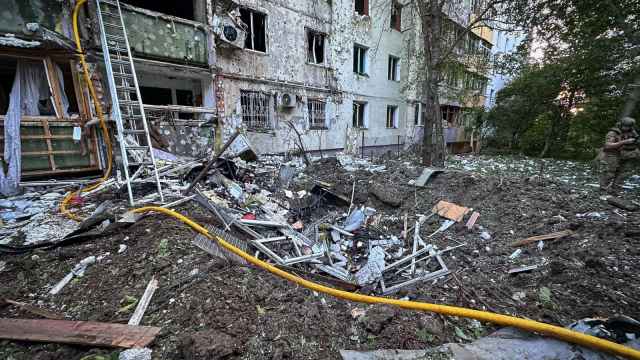Russia’s Gazprom is boosting efforts to woo Asian investors as the state-owned gas giant remains restricted in European and U.S. capital markets because of sanctions over Ukraine, and faces a credit rating knock after Russia’s downgrade to junk.
Gazprom — which was awarded the highest possible credit rating by one Chinese agency on Monday — will hold investor days in Hong Kong and Singapore this week in a bid to drum up local interest among Asian investors in the region.
Last year, Gazprom chose London and New York for the same investor events.
Russian companies have tried to act on Kremlin words about a pivot to the east in recent months amid a post-Soviet low in relations with the West. But few deals have actually emerged, and experts warn that Asian investors do not have any special love for Russia.
“The geopolitical risk influences Asian investors as much as it influences European or U.S. investors,” said Dmitry Dudkin, the head of fixed income research at UralSib Bank in Moscow.
New Rating
Chinese rating agency Dagong assigned Gazprom its highest credit rating — AAA — on Monday, above that awarded to the gas giant by the three large global rating agencies.
“The political environment of Russia is relatively stable and sustainable … strong production capacity and stable sales secure the leadership position among its international peers,” Dagong wrote in its report on Gazprom.
Standard & Poor’s have Gazprom on BBB-, Fitch on BBB- and Moody’s on Baa2, and all three have a negative watch on the company.
Analysts contacted by The Moscow Times on Monday said Dagong’s decision may allow Chinese funds to invest in Gazprom, but would otherwise have a very limited impact.
“It is more politics than economics,” said Sergei Pigarev, an oil and gas analyst at Rye, Man & Gor Securities in Moscow. “Maybe Gazprom has been working with this agency to get some positive coverage [ahead of the Asian roadshow].”
Standard & Poor’s last week downgraded Russia’s sovereign credit rating from BBB- to junk, and a similar change for Gazprom appears likely.
Both Moody’s and Fitch have Russia one notch above junk with a negative outlook.
Dagong rates Russia as A with a stable outlook.
Looking East
EU and U.S. sanctions preventing major Russian private and state-owned firms from raising long term debt, along with economic problems in Russia, including Gazprom, from foreign capital markets.
Since political relations with the West fell apart following the annexation of Crimea in May, Gazprom has appeared to step up its efforts in Asia.
“Gazprom will hold its investor days in Hong Kong and Singapore this year against the background of the development of Russian-Chinese cooperation and the increase in interest in the activities of the company from Asian investors,” Gazprom’s press service said in written comments Monday.
In October, company executives said that Gazprom was looking at a possible listing — as a means to attract additional financing — on the Hong Kong Exchange.
Oil giants Rosneft and LUKoil are also reportedly considering such a move, Russia’s Economic Development Ministry said last year.
Gazprom listed global depositary receipts on the Singapore Exchange in June.
Russian aluminum producer RusAl was the first non-Asian company to have a primary listing in Hong Kong — but that was five years ago and long before the deterioration of relations between the Kremlin and the West, the falling price of oil, and a deepening economic recession inside Russia.
Export Financing
Credit options for Russian companies will go hand in hand with an increase in trade and business ties with China and will not just materialize because of Kremlin rhetoric, UralSib’s Dudkin said.
While large deals between Russian and Chinese companies have so far been relatively thin on the ground, Gazprom signed a landmark $400 billion deal with China National Petroleum Corporation in June. The agreement will see Moscow supply 38 billion cubic meters of natural gas annually to China from 2019.
Three months later President Vladimir Putin oversaw the beginning of construction on the 4,000 kilometer long “Power of Siberia” pipeline through which the contracted gas will flow.
In November, Moscow and Beijing tentatively inked another agreement that would see a further 30 billion cubic meters of gas a year be sent to China via a different route from western Siberia.
But gas negotiations with China have been dogged by arguments over price and, with the price of gas in the Chinese contracts linked to oil, the collapse in the price of crude since June highs may complicate further agreements.
Contact the author at [email protected]
A Message from The Moscow Times:
Dear readers,
We are facing unprecedented challenges. Russia's Prosecutor General's Office has designated The Moscow Times as an "undesirable" organization, criminalizing our work and putting our staff at risk of prosecution. This follows our earlier unjust labeling as a "foreign agent."
These actions are direct attempts to silence independent journalism in Russia. The authorities claim our work "discredits the decisions of the Russian leadership." We see things differently: we strive to provide accurate, unbiased reporting on Russia.
We, the journalists of The Moscow Times, refuse to be silenced. But to continue our work, we need your help.
Your support, no matter how small, makes a world of difference. If you can, please support us monthly starting from just $2. It's quick to set up, and every contribution makes a significant impact.
By supporting The Moscow Times, you're defending open, independent journalism in the face of repression. Thank you for standing with us.
Remind me later.







